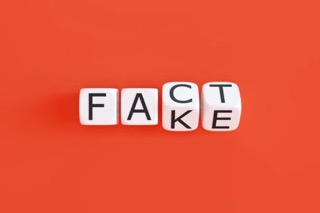
Responsible content consumption and content sharing! Disinformation, fake news in peace and war
We talk a lot about how our consumption of content is exposed to “Fake News”, which is the pseudo-news coming from the internet that can now influence us on almost every aspect of our lives, in addition to our political and health information.
It is important to be even more vigilant now, during the Ukraine-Russia war, because misinformation and the spread of fake news are not only a way of creating a climate of panic, but can also be a deliberate tool in a power’s war strategy.
On social media platforms, or on sites claiming to be information portals or even media, it is now even more difficult than usual to spot fake news (a campaign entitled “Check the information” has already been launched on TikTok sites). Moreover, in the current heightened atmosphere, it is easy to become, with good intentions, a spreader of fake news.
We have put together some good advice on what we can do to avoid becoming victims of Fake News:
DOUBLE CHECK – Every content provider is trying to reach as many people as possible with the content they produce. And in such emotional situations, the catchy, click-hunting titles that we immediately share ourselves, and notice that the writing itself may be about something else entirely, work even better. It’s important to read the article and only share it if you feel the content is worth sharing, and to think about who it might affect before sharing. We are responsible for sharing content!
CHECK THE NEWS – if we come across interesting news, it is worth checking whether it has been published elsewhere: it is worth checking the date of the news, whether it is written about on credible sites we have previously identified, or whether it has been in the press. Look at the context of the news and who produced it. Since almost all newsrooms are now working on a 0-24 hour basis, it is quite likely that one of the media has already processed the information we found.
ABOUT THE PRESS – although sometimes the media may run into misinformation, news stories are usually heavily checked by editors before publication. However, it is worth paying attention – especially during the parliamentary campaign – to the political narrative of the media outlet and to treat opinion pieces and publicist articles with the appropriate “source criticism”.
CHECK THE SOURCE – real news usually has a source, which is indicated in articles and posts. If you can’t find it, start suspecting that it is someone’s opinion or just a guess.
PICTURES OF IMAGES OF WAR – Many previous wars use pictures and videos as images of the current war, thus increasing the number of clicks. If you are suspicious of any of these images, do a quick search on Google image search, often the fake news producer is caught out.
DON’T BECOME THE PUPPET OF DELIBERATE INCITEMENT – it’s true of all wars that they have a powerful effect on our emotions. Many people take advantage of this to share emotionally charged, mainly inflammatory, hateful content in support of one political side or another. We should make a conscious effort to recognise and distance ourselves from such content.

